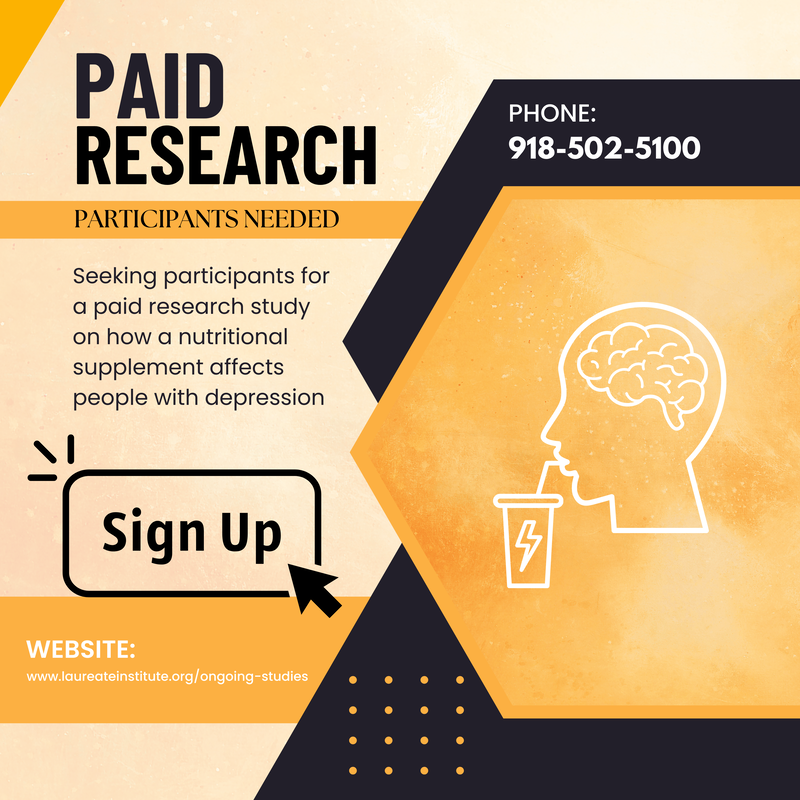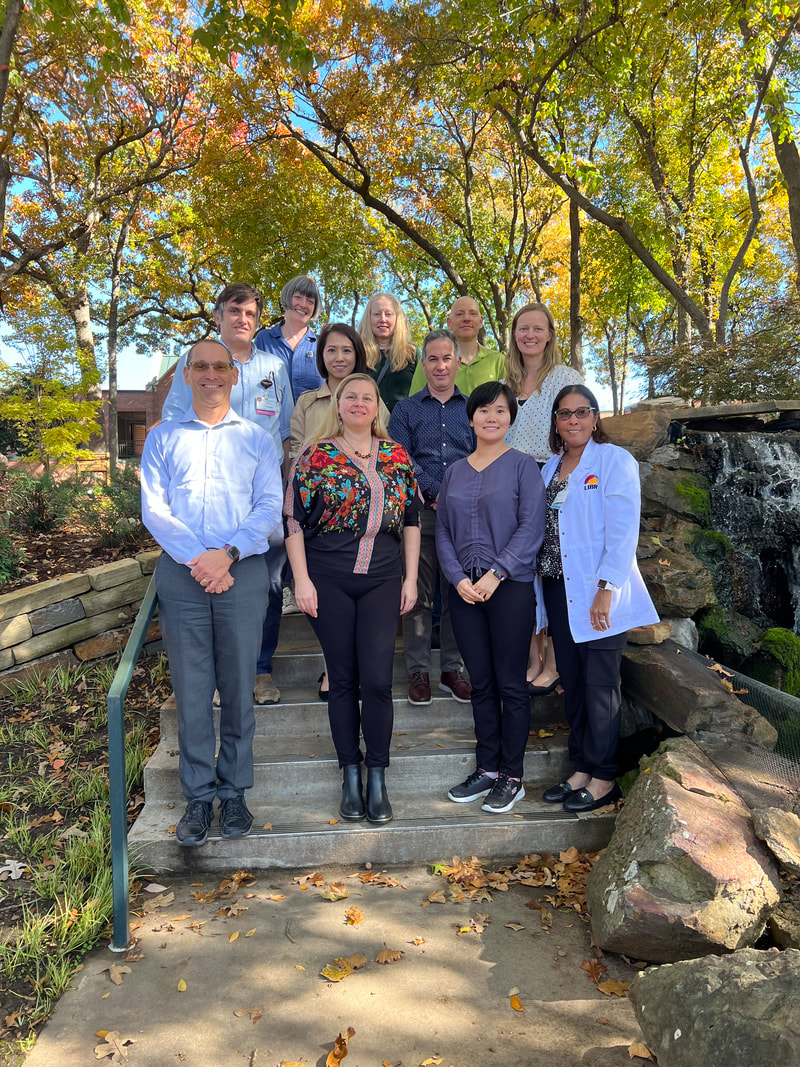|
Q: What is this research about, and what are you hoping to learn?
A: We are doing a study to see if a special supplement, kind of like the keto diet, can change how the brain works in people with depression when performing tasks about good, bad, and personal experiences. It will take about 10-11 weeks to get all the information we need for this study. Q: Who is the ideal candidate to participate in this study? A: To be in this study, you should be feeling depressed. If you take medicine, you need to have taken the same amount for at least 6 weeks before joining the study. But don't join if you're pregnant, might be pregnant, or want to get pregnant soon. Also, if you're breastfeeding, want to take vitamins or change your diet during the study, have heart or kidney problems, another ongoing health issue, feel like hurting yourself, or are very scared of tight spaces, it's best not to be in the study. Q: What happens to people who take part in this research? A: We need up to 75 people for our study. Everyone will have a talk with a mental health expert, answer some questions, do brain games, get pictures of their brain, give blood and urine samples, and try either a special diet-like drink or a placebo for two months. Q: How do you decide who gets the keto-like supplement, and who gets the placebo? A: In this study, whether you will get the supplement or a powder that does do not anything is like flipping a coin. Half of the people will get the special drink, and the other half will get a pretend one. You and the doctor won't know which is which, but they can find out in case of an emergency. Q: Could being involved in this research hurt me? A: No, this study is low risk, but there are a few things that might not feel so great. First, the special drink could give you an upset stomach, nausea or diarrhea. Second, when they take your blood, it could pinch a little. Lastly, when you go into the machine for pictures, you might feel a bit claustrophobic or nervous. But don't worry, if anything bothers you, just tell the people doing the study, and they may be able to help you feel better. Q: I’ve never had an MRI. What’s that like? A: The brain pictures are taken with a special machine called an MRI. An MRI does not involve any radiation, unlike an X-ray. The MRI machine looks like a big metal tube with a strong magnetic field around it. You'll lie on a table that goes into the tube. It's important to stay as still as you can while the machine takes pictures. It can be noisy, so you'll have earplugs to make it quieter. You can talk to the people running the MRI, and if you want to stop, they'll help you get out. They may also keep an eye on your heart rate and how you breathe using a small device on your finger and a band on your chest, but it won't be tight. Q: Will being involved in this research benefit me? A: You might not see direct benefits for yourself in this study, but you're doing something really important. By being part of this research, you're helping us learn more about a keto-like supplement and how it affects the brains of people with depression. This information could be used to help others with depression in the future, so your participation is valuable for everyone. Q: How long will each study visit take? A: Each study visit may vary in length, but on average, it will take a few hours. We'll do our best to schedule appointments that work for you. Q: Will I need to come to the study site for every visit? A: Yes, you'll need to come to the study site for most visits. We want to make sure we can closely monitor your progress and collect the necessary data. Q: Are there any dietary restrictions during the study? A: While you're in the study, it's important to follow the instructions provided regarding your diet. You may be asked to avoid certain foods or beverages. Q: Will I receive any compensation for participating in the study? A: Yes, we'll provide compensation for your time and participation in the study. The amount will be discussed with you during the informed consent process. Q: What if I have to miss a study visit? A: If you need to miss a study visit, please let the study team know as soon as possible. We'll work with you to reschedule and make sure you stay safe and healthy during the study. Q: Will my personal information be kept confidential? A: Yes, your personal information and data will be kept confidential. We take your privacy seriously and will follow strict guidelines to protect your information. Q: How will I receive updates on the study's progress? A: You can ask the study team for updates on the study's progress, and we'll do our best to keep you informed throughout the research. Q: I’d like to talk to someone about participating in the study. What should I do? A: Excellent! Please visit our website: ONGOING STUDIES - Laureate Institute for Brain Research, or call 918.502.5100.
0 Comments
Dr. Jennifer Felger - November 7, 2023
"Inflammation and Anhedonia in Depression: Biomarkers, Mechanisms, and Therapeutic Implications" William K. Warren, Jr. Frontiers in Neuroscience Lecture 12:00 pm - 1:00 pm Program in the LPCH auditorium Jennifer C. Felger, PhD, is an Associate Professor of Psychiatry and Behavioral Sciences at Emory University School of Medicine. Dr. Felger’s work combines basic and clinical approaches to understand the mechanisms by which inflammation affects neurotransmitters and circuits to cause depressive symptoms in patients with psychiatric or medical illnesses. Her current work is focused on testing novel dopaminergic and anti-inflammatory therapies that might reverse the effects of inflammation on corticostriatal reward and motor circuits with the overarching goal of identifying treatments that can be targeted to patients with high inflammation. Dr. Felger has a PhD in Neuroscience and a Master’s in Clinical Research from Emory, and she completed a postdoctoral fellowship at The Rockefeller University. Her research has been funded by R01, R61/R33 and R21 grants from NIMH and by foundations like the Brain & Behavior Research Foundation (BBRF), American Cancer Society, and the Dana Foundation. Dr. Felger has received early career or travel awards from research societies like the Society for Biological Psychiatry and American College of Neuropsychopharmacology, and in 2017 she was awarded the Klerman Prize for Exceptional Clinical Research from BBRF. She is on the Editorial Board of Neuropsychopharmacology and serves as Associate Editor for Brain, Behavior and Immunity. Learning objectives:
|
Archives
July 2024
Categories
All
|
VISIT LIBR6655 South Yale Ave. Tulsa, OK 74136
918.502.5100 | [email protected] |
|
© 2009-2024. All Rights Reserved. Laureate Institute for Brain Research
Site powered by Laureate Institute for Brain Research



 RSS Feed
RSS Feed